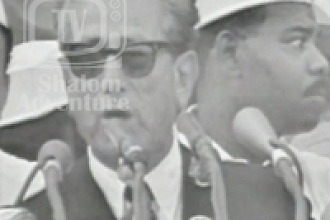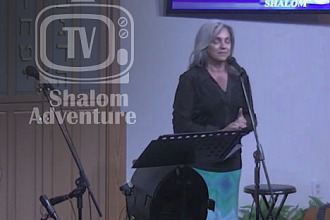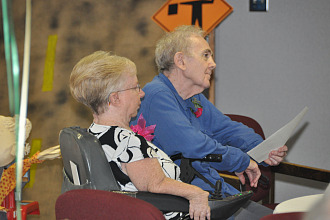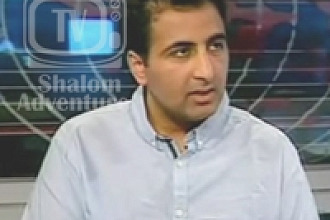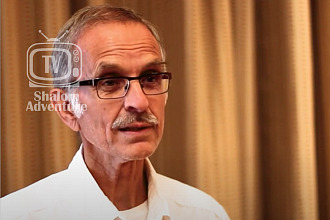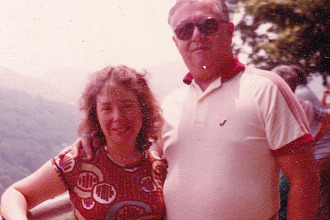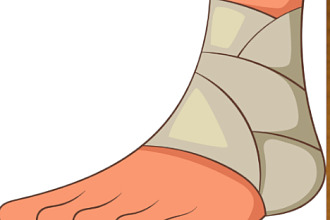Author Richard Paul Evans has written many novels that carry the theme “and they lived happily ever after”.
He admits that for a long time that was not the story of his own marriage. He and his wife Keri fought so much that it became a relief to go on a book tour. He couldn’t even imagine a peaceful relationship.
The turning point came on one of his book tours following a telephone fight in which his wife hung up on him. He felt alone, lonely, frustrated and angry, and decided he had reached his limit. He contemplated divorce. “…I turned to God. Or turned on God. I don’t know if you could call it prayer — maybe shouting at God isn’t prayer, maybe it is — but whatever I was engaged in I’ll never forget it. I was standing in the shower of the Buckhead, Atlanta, Ritz-Carlton yelling at God that marriage was wrong and I couldn’t do it anymore. As much as I hated the idea of divorce, the pain of being together was just too much. I was also confused. I couldn’t figure out why marriage with Keri was so hard. Deep down I knew that Keri was a good person. And I was a good person. So why couldn’t we get along? Why had I married someone so different than me? Why wouldn’t she change?
Finally, hoarse and broken, I sat down in the shower and began to cry. In the depths of my despair, powerful inspiration came to me. You can’t change her, Rick. You can only change yourself. At that moment I began to pray. If I can’t change her, God, then change me. I prayed late into the night. I prayed the next day on the flight home. I prayed as I walked in the door to a cold wife who barely even acknowledged me. That night, as we lay in our bed, inches from each other yet miles apart, the inspiration came. I knew what I had to do.”
The next morning as they awakened Richard asked for the first time a simple question which he repeated many mornings thereafter, “How can I make your day better?” Her replies were at first cynical and demanding, “Go clean the kitchen.” “Clean the garage.” After he cheerfully completed those demands for days, she asked him to stop asking that question every day. When he persisted, she questioned, “Why are you doing this?” He responded, “Because I care about you—and our marriage.”
Finally, Keri’s defenses were broken down and she wept, and through her tears she said, “Please stop asking me that. You’re not the problem. I am. I’m hard to live with. I don’t know why you stay with me.” Following some gentle conversation, she asked, “Can we just spend some time together?” He continued his daily sincere question for a month longer. Things changed. Fighting stopped. Keri asked, “What do you need from me? How can I be a better wife?”. During this time they gradually developed productive communication patterns and developed a compatible companionship.
Davis concluded, “Keri and I have now been married for more than 30 years. I not only love my wife, I like her. I like being with her. I crave her. I need her. Many of our differences have become strengths and the others don’t really matter. We’ve learned how to take care of each other, and, more importantly, we’ve gained the desire to do so. Marriage is hard. …To have a partner in life is a remarkable gift. I’ve also learned that the institution of marriage can help heal us of our most unlovable parts. And we all have unlovable parts.
“Through time I’ve learned that our experience was an illustration of a much larger lesson about marriage. The question everyone in a committed relationship should ask their significant other is, “What can I do to make your life better?” That is love. Romance novels (and I’ve written a few) are all about desire and happily-ever-after, but happily-ever-after doesn’t come from desire… Real love is not to desire a person, but to truly desire their happiness — sometimes, even, at the expense of our own happiness. Real love is not to make another person a carbon copy of one’s self. It is to expand our own capabilities of tolerance and caring, to actively seek another’s well being. All else is simply a charade of self-interest.” (Excerpted from https://faithit.com/question-saved-marriage-day-i-wanted-to-divorce-wife-richard-paul-evans/)
Scriptural counsel: “Husbands, love your wives, even as Messiah also loved the church, and gave himself for it.” (Ephesians 5:25). Isn’t it reasonable to conclude that many marriages could be saved, or made better, by such humble, selfless service as that exhibited by Richard Paul Evans?
Picture originally found here


